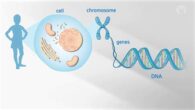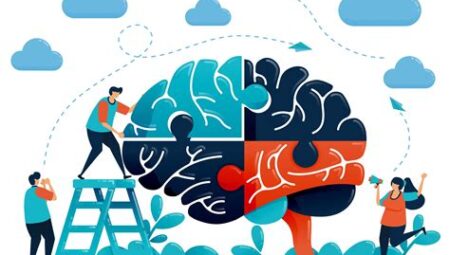Are you interested in pursuing a career in healthcare that involves the healing power of music? Have you ever wondered how music can positively impact patients in various healthcare settings? If so, then you may be intrigued by the field of music therapy. In this blog post, we will explore the multifaceted role of a music therapist and the impact they have on patient care. From using music to enhance mental health and well-being to supporting physical rehabilitation and pain management, music therapy has shown to be a valuable asset in the healthcare industry. We will delve into the educational and training requirements to become a music therapist, as well as the different specializations and areas of practice within the field. Additionally, we will discuss the future of music therapy in the evolving healthcare landscape, shedding light on the potential advancements and opportunities that lie ahead. Whether you are a healthcare professional, a student, or simply curious about the intersection of music and healthcare, this blog post will provide insights into the melodies of healthcare and the journey to becoming a music therapist.
Table of Contents
Understanding Music Therapy as a Healthcare Profession
Music therapy is a unique and important healthcare profession that uses music to address physical, emotional, cognitive, and social needs of individuals. It is based on the belief that everyone has the ability to respond to and appreciate music, making it an effective therapeutic tool for a wide range of patients.
Music therapists are trained professionals who use a variety of music-based interventions to help individuals achieve specific therapeutic goals. These goals can include improving communication and social skills, reducing pain and anxiety, increasing physical and cognitive functioning, and enhancing overall well-being.
Music therapy is used in a variety of healthcare settings, including hospitals, rehabilitation centers, mental health facilities, and palliative care programs. It can be tailored to meet the unique needs of different patient populations, making it a versatile and adaptable form of therapy.
Overall, understanding music therapy as a healthcare profession involves recognizing its unique ability to address a wide range of physical, emotional, and cognitive needs, and its potential to enhance overall quality of life for patients.
Exploring the Benefits of Music Therapy in Healthcare
Music therapy has been recognized as a valuable healthcare profession that utilizes the power of music to address physical, emotional, cognitive, and social needs of individuals. Through the use of music interventions in a therapeutic setting, music therapists aim to improve the overall well-being of patients. The benefits of music therapy in healthcare are extensive and have been proven to have a positive impact on various medical conditions and health outcomes.
One of the key benefits of music therapy in healthcare is its ability to reduce stress and anxiety in patients. Listening to or creating music can have a calming effect on the mind, which can be particularly beneficial for individuals who are undergoing medical procedures or dealing with chronic illnesses. The soothing nature of music can help promote relaxation and alleviate feelings of discomfort and unease.
Another significant advantage of music therapy is its capacity to improve emotional expression and communication. For patients who may struggle to verbalize their feelings, music provides a medium for self-expression and can help individuals connect with their emotions in a non-verbal way. This can be especially beneficial for individuals with autism, dementia, or other cognitive disorders.
Furthermore, music therapy has been shown to enhance motor skills and coordination in patients undergoing physical rehabilitation. By incorporating rhythm and movement into therapy sessions, music therapists can help individuals improve their motor function and regain physical abilities. This is particularly valuable for patients recovering from strokes, traumatic brain injuries, or surgeries.
The Role of a Music Therapist in Patient Care
When it comes to providing holistic care to patients, the role of a music therapist is indispensable. Music therapy is a unique form of treatment that uses the therapeutic power of music to address the physical, emotional, cognitive, and social needs of individuals. In patient care settings, music therapists play a crucial role in enhancing the overall well-being of patients and promoting their healing process through the use of music.
Patients who are undergoing medical treatment or rehabilitation can benefit immensely from the interventions of a skilled music therapist. Whether it’s using music to alleviate pain, reduce anxiety, or improve mood, the presence of a music therapist can significantly impact a patient’s experience and recovery. By assessing the individual needs of each patient, music therapists are able to tailor music-based interventions that are specifically designed to address their unique challenges and goals.
Furthermore, music therapists collaborate with other healthcare professionals to integrate music therapy into the overall treatment plan. They work closely with doctors, nurses, and rehabilitation specialists to ensure that the therapeutic benefits of music are incorporated into the patient’s care regimen. This multidisciplinary approach helps to maximize the effectiveness of music therapy interventions and contributes to the comprehensive care of the patient.
Overall, the role of a music therapist in patient care goes beyond simply providing entertainment or distraction. Music therapists are skilled professionals who use evidence-based practices to harness the healing power of music and contribute to the holistic well-being of patients in healthcare settings.
The Science Behind Music Therapy and its Impact on Health
Music therapy is a unique healthcare profession that utilizes the scientific principles of music to address various physical, emotional, cognitive, and social needs of individuals. It is grounded in the belief that music has the power to affect a person’s well-being and can be used as a therapeutic tool to improve overall health.
Many studies have shown that music therapy can have a positive impact on various health conditions, including reducing stress, fatigue, and anxiety in patients. The neurological mechanisms behind these effects are still being researched, but it is believed that music can influence the neurotransmitters in the brain, leading to improved mood and reduced perception of pain.
Furthermore, music therapy has been found to have physiological effects on the body, such as lowering blood pressure and promoting relaxation. This may be due to the rhythmic and repetitive elements of music, which can help synchronize biological rhythms, leading to a state of calmness and balance.
Overall, the science behind music therapy is still a growing field, but the evidence supporting its positive impact on health is undeniable. As more research is conducted, we can expect to gain a deeper understanding of how music can be used as a therapeutic tool in healthcare settings.
Educational and Training Requirements to Become a Music Therapist
There are specific educational and training requirements to become a music therapist, as this profession involves a unique combination of musical knowledge and therapeutic skills. In order to pursue a career in music therapy, individuals must complete a bachelor’s degree in music therapy from a program approved by the American Music Therapy Association (AMTA).
During their undergraduate studies, aspiring music therapists will receive comprehensive training in music theory, psychology, counseling techniques, and clinical practice. They will also complete a supervised internship to gain hands-on experience working with diverse populations, including individuals with developmental disabilities, mental health disorders, and chronic conditions.
After obtaining a bachelor’s degree, individuals must complete a clinical internship and pass the national certification exam offered by the Certification Board for Music Therapists (CBMT) to become a board-certified music therapist (MT-BC). This certification is recognized as the standard of excellence in the field and is required for professional practice.
It’s important to note that ongoing professional development and continuing education are essential for music therapists to maintain their certification and stay current with advancements in the field. By fulfilling these educational and training requirements, individuals can embark on a rewarding career as a music therapist and make a positive impact on the health and well-being of their clients through the transformative power of music.
Specializations and Areas of Practice in Music Therapy
When it comes to the field of music therapy, there are a variety of specializations and areas of practice that professionals can focus on. Whether it’s working with children, adults, or the elderly, music therapists have the opportunity to tailor their practice to a specific population. For example, some music therapists specialize in working with individuals with developmental disabilities, using music to help improve their cognitive and social skills.
Another area of specialization in music therapy is palliative and end-of-life care. Music therapists who specialize in this area work with patients who are nearing the end of their lives, providing comfort and support through the use of music. This type of therapy can have a profound impact on the quality of life for individuals in hospice care.
Additionally, music therapists may choose to specialize in mental health and well-being. This could involve working with individuals struggling with anxiety, depression, or other mental health concerns. Using music as a therapeutic tool, these professionals can help clients find ways to cope with their emotions and improve their overall mental health.
Overall, the field of music therapy offers a diverse range of specializations and areas of practice, allowing professionals to make a meaningful impact in the lives of their clients through the power of music.
Using Music Therapy to Enhance Mental Health and Well-being
Music therapy has been widely recognized as an effective tool for enhancing mental health and overall well-being. The use of music therapy in clinical settings has shown promising results in reducing symptoms of depression, anxiety, and stress. Many individuals have experienced the positive impact of music therapy on their mental health, making it a valuable option for those seeking holistic and non-invasive treatment.
Through the use of various musical activities, such as listening to music, composing, and improvisation, music therapists can help individuals express and process their emotions in a safe and supportive environment. This creative approach to therapy can be particularly beneficial for those who may struggle to articulate their feelings through traditional talk therapy.
In addition to addressing mental health concerns, music therapy can also promote overall well-being by providing a sense of comfort, relaxation, and empowerment. The act of engaging with music can serve as a form of self-care and self-expression, allowing individuals to reconnect with themselves and their emotions in a meaningful way.
Furthermore, music therapy has been shown to be effective in improving cognitive function, communication skills, and social interaction, all of which contribute to a person’s overall mental and emotional wellness. As our understanding of the mind-body connection continues to evolve, the integration of music therapy into mental health care is becoming increasingly recognized and valued.
How Music Therapy Supports Physical Rehabilitation and Pain Management
Music therapy has been proven to be an effective tool in supporting physical rehabilitation and pain management for individuals with various health conditions.
When used as a complementary approach alongside traditional medical treatments, music therapy can help reduce pain and discomfort, improve physical function, and enhance overall well-being.
By incorporating elements such as rhythm, melody, and harmony, music therapy can help individuals regain strength, coordination, and mobility following an injury, surgery, or illness.
Additionally, the emotional and psychological benefits of music therapy can play a crucial role in reducing stress, anxiety, and depression related to pain and physical limitations, ultimately promoting a more positive and proactive approach to rehabilitation and healing.
Integrating Music Therapy into Palliative and End-of-Life Care
Music therapy has been recognized as an effective approach to improving the quality of life for individuals receiving palliative and end-of-life care. It involves the use of music and musical activities to address the physical, emotional, cognitive, and spiritual needs of patients. Research has shown that music therapy can help reduce symptoms such as pain, anxiety, and depression, while also improving communication and promoting a sense of peace and comfort.
Integrating music therapy into palliative and end-of-life care requires trained and certified music therapists who can tailor interventions based on the unique needs and preferences of each patient. These professionals work collaboratively with the interdisciplinary team to develop individualized treatment plans that support the holistic well-being of patients and their families.
Music therapy interventions in palliative and end-of-life care settings may include live music experiences, songwriting, guided imagery, and relaxation techniques. These approaches can provide opportunities for patients to reflect, reminisce, and express emotions, ultimately facilitating a sense of closure and fulfillment during the end-of-life journey.
As the field of music therapy continues to evolve, there is a growing recognition of its value in palliative and end-of-life care. By integrating music therapy into these settings, healthcare providers can enhance the overall experience for patients and families, offering compassionate support and promoting dignity and comfort throughout the end-of-life process.
The Future of Music Therapy in the Evolving Healthcare Landscape
As the field of healthcare continues to evolve, so too does the role of music therapy in the treatment and care of patients. With an increasing body of research supporting the benefits of music therapy, its future in healthcare looks promising.
One of the most exciting developments in the future of music therapy is its integration into telehealth services. With advancements in technology, music therapists are now able to provide their services remotely, reaching patients who may not have had access to this form of therapy before.
Another aspect of the future of music therapy is the growing recognition of its importance in mental health care. As the stigma surrounding mental health issues decreases, the demand for music therapy as a tool for emotional expression and support is likely to increase.
Overall, the future of music therapy in the evolving healthcare landscape appears to be bright, with increasing acceptance and integration into a variety of healthcare settings.






